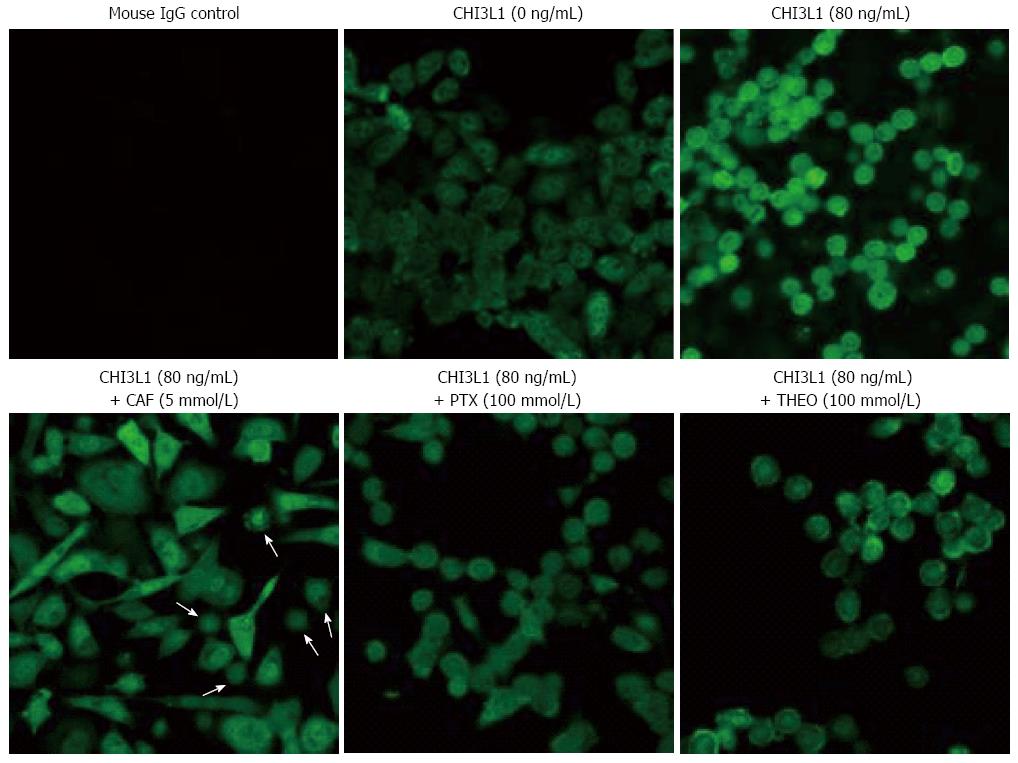Copyright
©2014 Baishideng Publishing Group Co.
World J Gastroenterol. Feb 7, 2014; 20(5): 1127-1138
Published online Feb 7, 2014. doi: 10.3748/wjg.v20.i5.1127
Published online Feb 7, 2014. doi: 10.3748/wjg.v20.i5.1127
Figure 3 Caffeine, pentoxifylline and theophylline inhibit β-catenin nuclear translocation with different degrees.
SW480 colonic epithelial cells were cultured on lab-tec chamber slide. After reached to 90% confluency, the cells were stimulated with or without purified human chitinase 3-like 1 (CHI3L1) (80 ng/mL) in combination with caffeine (CAF) (5 mmol/L), pentoxifylline (PTX) (100 mmol/L) or theophylline (THEO) (100 mmol/L) for 24 h. Human CHI3L1 protein was purchased from Quidel (San Diego, CA). β-catenin was then detected using mouse anti-human β-catenin monoclonal primary Ab (BD Biosciences, CA) and FITC-horse anti-mouse Immunoglobulin G (Vector Labs, Burlingame, CA) and analyzed by confocal microscope (magnification, objective 40 ×). White arrows show the limited numbers of completely nuclear translocated β-catenin positive cells after caffeine treatment.
- Citation: Lee IA, Kamba A, Low D, Mizoguchi E. Novel methylxanthine derivative-mediated anti-inflammatory effects in inflammatory bowel disease. World J Gastroenterol 2014; 20(5): 1127-1138
- URL: https://www.wjgnet.com/1007-9327/full/v20/i5/1127.htm
- DOI: https://dx.doi.org/10.3748/wjg.v20.i5.1127









